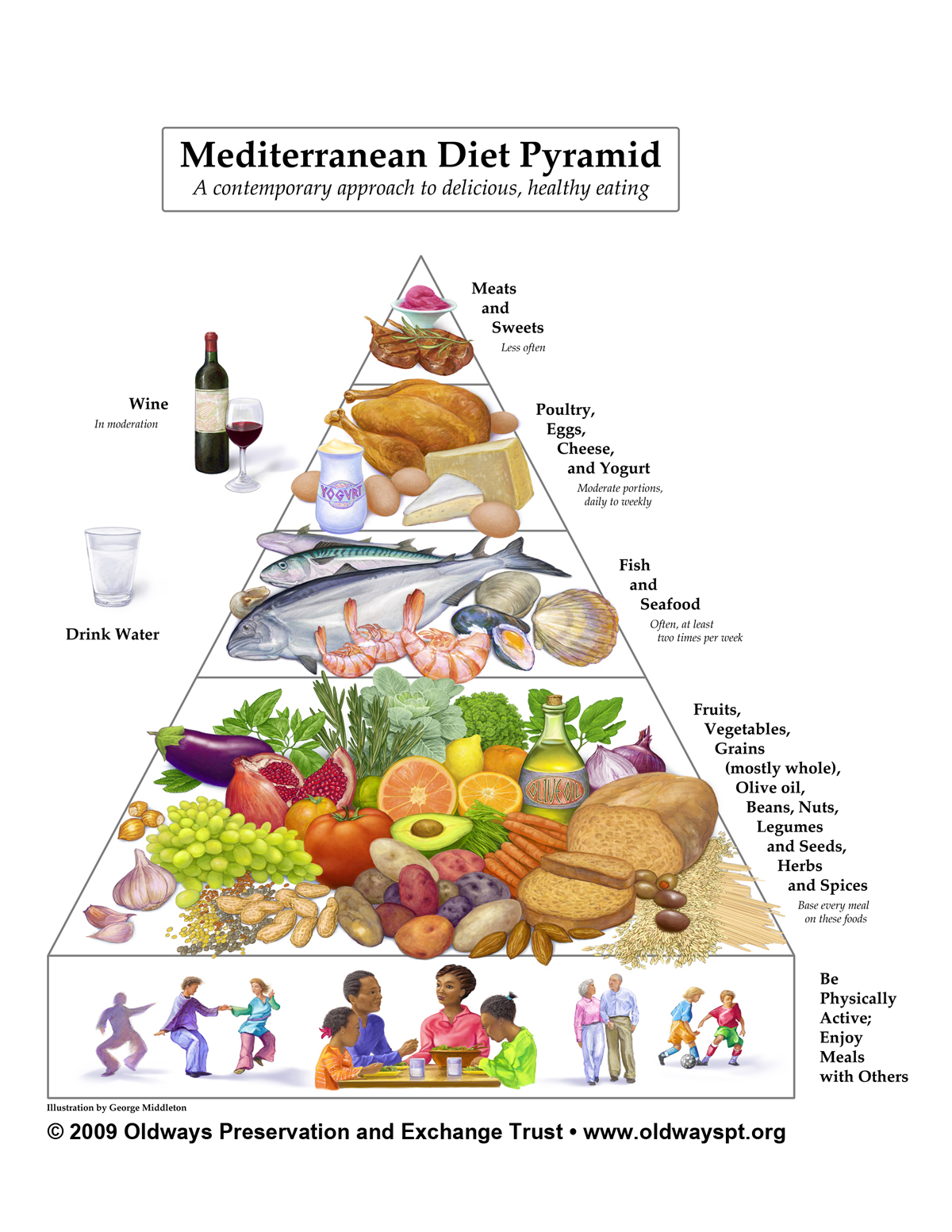Curious about the Mediterranean diet-how to make it work for you

(BPT) – – They never counted calories, but they ate flavorful, satisfying food and drank wine with lunches and dinners. The people in countries bordering the Mediterranean have historically been known as some of the healthiest, fittest people in the world. Their diet of fresh fruits and vegetables, wholesome whole grains, and fish and lean meats has long been hailed by nutritionists and health experts as a reliable recipe for weight control and better health.
If you need further evidence of the health value of the Mediterranean Diet, consider a recent NPR report on the growth of the obesity epidemic worldwide. In that report, a professor of pediatrics and nutrition at the University of Verona linked the growth of obesity in Italy with the trend away from a traditional Mediterranean diet and toward a more American one.
“The good news is the traditional Mediterranean Diet is one of the healthiest lifestyles in the world and eating this way is not only enjoyable but it is affordable, delicious and easy to do,” says Sara Baer-Sinnott of Oldways, a nonprofit organization that promotes healthy eating and drinking, and hosts National Mediterranean Diet Month each year in May. “It’s appropriate for all ages, incorporates familiar foods and tastes great.”
You can easily find the essential ingredients for following a Mediterranean Diet in your neighborhood supermarket. With some simple planning and a few lifestyle adjustments, it’s possible to feed your entire family delicious food that is healthy and affordable.
First, look to the Mediterranean Diet pyramid as a guide, it places exercise, activity and communal dining at its base, as a reminder that this is not just a “diet.” The pyramid also recommends incorporating vegetables, whole grains and fruit in every meal, fish at least twice a week, moderate portions of lean meat and dairy, wine in moderation, and red meat and sweets less often.
The food and nutrition experts at Oldways also recommend eight steps for adopting the Mediterranean Diet as your new healthy lifestyle:
- Eat lots of vegetables. Think beyond just raw veggies and some dip. You can find many flavorful, creative ways to incorporate vegetables into your diet, from a plate of sliced tomatoes drizzled lightly with olive oil and crumbled feta cheese to a medley of grilled or oven-roasted vegetables. Strive to fill half your plate with vegetables at lunch and dinner.
- Change your perspective on meat. If you eat meat, consume smaller amounts of 3 ounces or less. Instead of having a steak or a whole chicken breast, incorporate your lean meat selection into another dish, such as small strips of sirloin in a vegetable saute, or diced prosciutto as a garnish for a dish of pasta.
- Never skip breakfast, and make your first meal of the day one that emphasizes fiber-rich foods like fruit or whole grains. High-fiber foods will help you feel fuller for longer. Try layering granola, yogurt and fruit in a parfait, or mash half an avocado with a fork and spread it atop a slice of whole grain toast.
- Savor seafood twice a week. Not only is fish a naturally lean protein source, the fats that it does have are the good ones – omega-3 fatty acids. This type of fat, found in shellfish, tuna and salmon, has been linked to brain and heart health.
- Go meatless one night a week. Instead of a meal with meat, build a meal around beans, whole grains and veggies flavored with fragrant herbs and spices. When one night a week feels comfortable, add a second night.
- Don’t turn your back on fat entirely. Instead, emphasize “good” fats. Healthy fats can be found in extra-virgin olive oil, nuts, peanuts, sunflower seeds, olives, avocados and fish. Include these sources in daily meals.
- Include lean dairy products like Greek or plain yogurt, which are high in protein and lower in fat, skim milk and small amounts of a variety of cheeses.
- Don’t give up dessert; eat fruit like figs, oranges, grapes, apples or pomegranates. Instead of daily ice cream or cookies, save sweets for a special treat or celebration.
“The healthy Mediterranean Diet and its lifestyle practices reduce the risk of chronic diseases such as heart disease, cancer and diabetes,” Baer-Sinnott says. “The foods that are the foundation of this lifestyle can boost the health and brainpower of everyone, from infants to the elderly.”
You can learn more about Oldways, the Mediterranean Diet and download a pdf brochure at http://oldwayspt.org/resources/mediterranean-diet-101-brochure. Try this delicious recipe for a taste of the Mediterranean lifestyle:
Penne with Pesto and Cherry Tomatoes
INGREDIENTS
- 1 pound cherry tomatoes
- 2 tablespoons extra-virgin olive oil
- 1 teaspoon salt
- 8 ounces whole wheat penne pasta
- 2 tablespoons pesto
- Salt and freshly ground pepper to taste
DIRECTIONS
Cut the tomatoes into halves and put them in a glass or stainless steel bowl. Add the olive oil and 1 teaspoon of salt. Toss, cover and leave at room temperature for several hours or overnight, tossing once or twice.
When you’re ready to eat, bring a large pot of salted water to a boil. Add the penne and cook according to the package directions. Drain and return the hot pasta to the pan along with the tomatoes, their juice and the pesto.
Toss. Season with freshly ground pepper and serve hot or at room temperature.
If you have some fresh local tomatoes, by all means use about three or four to make the sauce. But the new cherry tomato varieties, including colorful heirlooms and yellow pear, provide plenty of flavor. Substitute a half cup each of chopped fresh basil and Parmesan cheese for the pesto.
Serves four.
